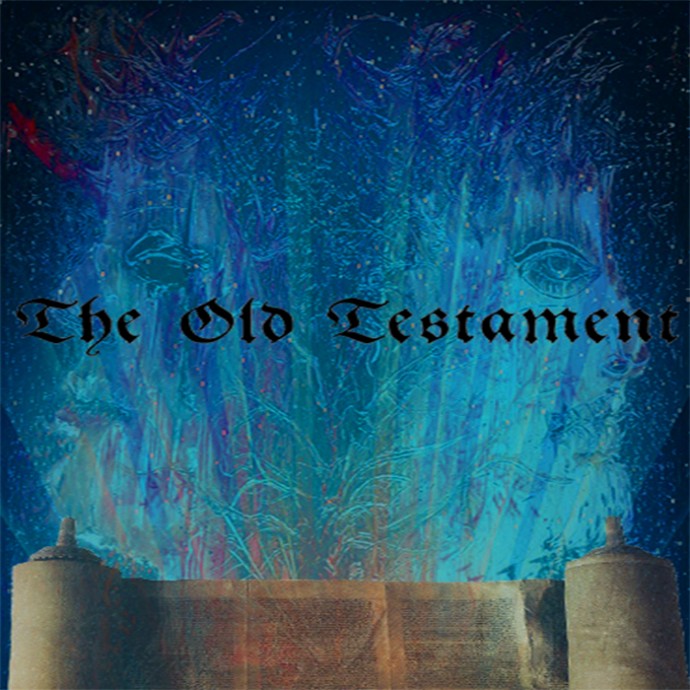Controversial laws, wars, heroism, and a blood-thirsty, sexist, racist, high-maintenance main character loved by millions world-wide. These are some of the ingredients for the most sold text of all time: The Bible. Many will have heard of it – either in Church or from overly eager and annoying people interrupting your walk outside with a “Do you have a moment to…” – but few have actually read it. Sensa Nostra took on the challenge of reading the Old Testament and presents you with a different experience of the text.
The Bible is a curious text composed of two main bundles of smaller chapters called the Old Testament and the New Testament. The former tends to be known as the more ‘exciting’ of the two and indeed, there are lots of wars and plenty of bloodshed, but it’s also much more of a rule book and a description of various families. Whole genealogies are written out in a very boring fashion, with many juicy details of family gossip left out. Mundane, ridiculous, hypocritical, unnecessary rules are applied arbitrarily whenever God gets pissed off or bored. However, there are also plenty of fascinating stories riddled with doubtful ideas of ethics, futile acts of aggression, and expressions of unearned privilege.
The first chapter, Genesis, outlines the creation of the world according to the limited advancements of science and astronomy at the time. However, despite the text having been written centuries before Christ, 46% of Americans still believe this to be the truth and that the Earth is only 10,000 years old. Other miraculous stories in the Old Testament include:
- an exploration of morality in the story of the Fall of Man
- a giant flood that swamped the Earth but spared all species due to a boat hoarding all the ridiculously well-tamed pairs of animals
- the building of an enormous tower by people who all of a sudden start speaking a multitude of languages
- an exciting yet fraught with disasters trip through the desert
- a talking burning bush
- a man surviving a lions’ den containing lions who seem to have abandoned their usual predatory nature
- rape, wars, blood, adultery, and lots of confusion as to who is a wife and who is a sister
The Old Testament is in many ways a great book of fiction with numerous tales told in a variety of manners. While the stories are magical, they nevertheless contain many figures and events that could be interpreted as symbolic or reflections of society and man as a whole. In that way, the text is much more complex than would initially be thought. Sometimes the writing is incredibly dull, superfluous, and unnecessarily complex, but at times it is beautiful and poetic. The Old Testament contains letters, poems, laws, prophecies, parables, and verse – all making for multifarious reading. However, there is quite some overlap and the writers seem to have struggled in collaborating and making sure everything remained chronological.
There are many characters in the text, but by far the most prominent one is God, a.k.a. the Lord, Yahweh, Adonai, or Elohim. It’s difficult to judge whether God is the protagonist or antagonist of the text and its stories, because just like there are many names for him, he also has a multitude of personalities. In fact, it would not be surprising that if examined by a psychiatrist, he would match the DSM criteria for numerous conditions (Dissociative Personality Disorder, Narcissistic Personality Disorder, Antisocial Personality Disorder, etc.) Given the numerous factual and scientific inaccuracies of the text and the dubious way in which the final text was composed, it’s likely that he’s a fictional figure and has no actual presence in reality. It’s therefore somewhat surprising that he has such a large fan base of “Christians” who devote their lives to him, praying in vain and bellowing hymns in what they call “His house”.
Throughout the Old Testament, God comes across as a highly mysterious character who seems to avoid giving any clarity as to who exactly he is. When Moses dares to ask him what his name is, God refuses to answer and simply says, “I am who I am.” God also rarely appears in person but instead is a shape-shifter, using nature and the paranormal as masks for his theophanies. Across the whole text, God takes on various forms such as that of a burning bush, an angel, in dreams, and in visions. None of these shapes sound verifiable – after all, throughout history, numerous people have claimed to be “God” and the Bible does nothing to convince us that a burning bush was indeed God and not a hallucination on Moses’ part due to heat stroke.
His commands and behavior are equally capricious. The book of Leviticus contains an excessive amount of detailed rules God’s minions are expected to follow. These include not being allowed to wear polyblend outfits, being forbidden to cut or shave your hair, and blind or lame people or those with flat noses not being allowed to approach the altar of God. There are also a variety of other laws that, if broken, result in the death of innocent people. For example, bestiality results in the death of both the human and the animal and if someone cheats on their spouse, both they and their spouse must be put to death. (One would think that being cheated on is bad enough already – apparently that’s not the way God feels about it, bringing victim-blaming to a whole new level.)
God also seems to suffer from a superiority complex which, when taking a psychological approach to his character, is perhaps all down to what could be low self-esteem. God’s insecurities can be seen from his Ten Commandments. The first and foremost commandment is “You shall not bow down to [any idols of God] or worship them; for I, the LORD your God, am a jealous God, punishing the children for the sin of the parents to the third and fourth generation of those who hate me.” This commandment is a great depiction of God’s character throughout the Old Testament. God is a fan of group punishment, afraid that the portraits mere humans would make of him would not do his greatness justice, and that they will fall in love with other gods. (The deadly sin of jealousy of course does not apply to a divine being.) If God was truly that great, one would think that his people wouldn’t need convincing. God also makes sure to repeat the phrase “I, the LORD your God” numerous times throughout the Old Testament, emphasizing his omnipresence and dominance over his people as though he were afraid that if he didn’t refer to himself often enough, people wouldn’t pay attention to him.
God’s love for wanton punishment and cruelty is seen throughout the Old Testament. His followers constantly live in fear of being punished for random mistakes. When Aaron’s sons fail to make the right preparations for approaching the altar, God sends fire to consume them. Besides death, banishment is another one of God’s favourite forms of punishment. Eating meat with blood in it results in banishment not only from Israel, but also from God’s grace. Also, punishing only those who sin is not enough – their children and descendants must suffer, too.
Indeed, to God, humanity seems to be some kind of bacterial culture in a petri dish that God experiments on to see just how far people are willing to go to please him (or, in other words, to live in fear and subservience to avoid his wrath). God’s relationships with his trusty followers are excellent examples of abusive and coercive relationships. In order to prove their loyalty and love for him, God puts them through trials that are out of line with his commandments, but because it is for the benefit of God, breaking the commandments is fine. One prime example of this is when God commands Abraham to kill his son. Just as Abraham prepares to kill him, God sends an angel to stop him. God doesn’t care about the trauma he just inflicted on Abraham’s innocent son or the awkward position Abraham and his son are now in. Getting other people to kill their children and stopping them just in time is fine entertainment. God tries to comfort Abraham by telling him that he’s impressed by his devotion and reaffirming his lofty covenant. After that he disappears from the scene, making a dramatic exit.
It’s clear that God does not value human reason and free will. (Telling people that they’re free to follow him or not but then saying that if they don’t, they’ll burn in hell is not loving or giving them free will – it’s coercion.) Instead the opposite is true. God praises those who abandon logic and any sense of morality when it results in his benefit. Numerous wars are fought in his name, entire cities are burned to the ground when only a few people sin, God is ambiguous in the purpose of his commands but nevertheless demands full compliance. As a result, God comes across as a callous individual who supposedly knows what is best for mankind, but who is selective in revealing his purpose.
This is true for much of the text. The reader remains unclear as to what the exact purpose of the text is. Is it a unique, biased take on history? A psychological analysis? A social commentary? A guidebook on ethics? A collection of fairytales? Nevertheless, it’s a fascinating read that will no doubt help people to understand many works of literature, art, events in history, and why and how people form their beliefs today. Reason, logic, demands for empirical evidence, or any shred of critical thinking must be put aside when reading it, however, as it makes for a much more frustrating reading experience when approached from those angles. Despite whatever one’s personal beliefs may be, it’s an interesting and important text, especially seeing as it’s a major text in the realm of religion. But even if you enjoy stories, drama, and exploring morality and this troubled character named God, it’d be well worth your time.
This text review is part of Textasy, Sensa Nostra’s new text reviews section. Want to contribute?








Pingback: High on Textasy |()